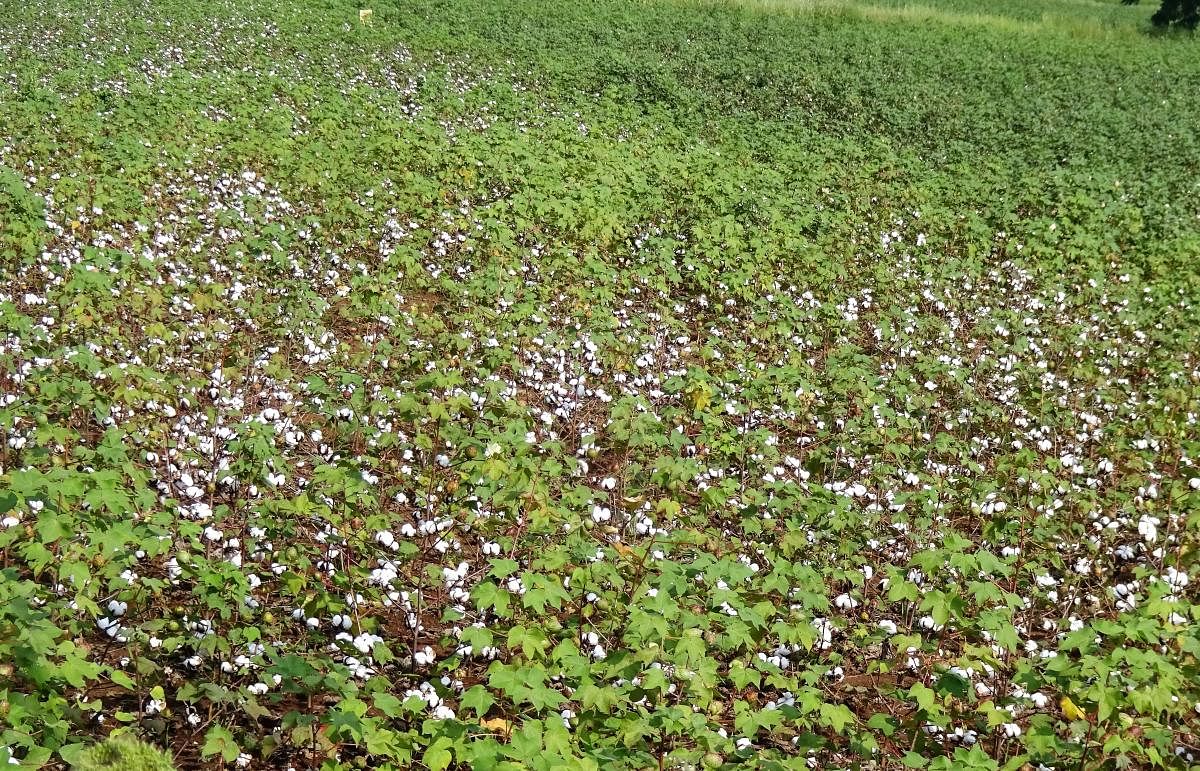
After a year of lull, Indian farmers have once again picked up cultivation of genetically modified Bt cotton as the area under the insect-resistant GM cotton increased by 6% in between two years, said a new report released on Tuesday.
"Biotech cotton area increased by 6% from 10.8 million hectares in 2016 to 11.4 million hectares in 2017. Insect-resistant (Bt) technology in cotton hybrids delivered broad-based benefits by saving losses caused by American bollworm and boosting cotton yield to 500 kg lint per hectare," according to the latest report from International Service for the Acquisition of Agri-biotech Applications (ISAAA) – a lobby group that promotes GM technology.
But to reach the next milestone of 700 plus kg lint, warns the report, would be difficult unless new technologies are brought in, there is proper implementation of resistant management strategies and a curb on illegal GM seeds.
"The next level of cotton yield targeting to achieve the yield level equal to global average cotton yield of 700+ kg lint per hectare, can't be achieved without the introduction of new generation biotech traits, including stacked traits, smart agronomy, and high yielding cotton cultivars," it adds.
The report comes at a time when Monsanto, one of the world's top biotech companies with significant presence in the Indian market, is fighting a legal battle with the Indian government on issues related to intellectual property and introduction of new products.
Another global agro-giant Bayer has recently taken over Monsanto and the new entity is yet to make any significant announcement regarding its India plan.
The ISAAA report shows the popularity of GM crops are mostly restricted in North and South American continents and parts of Asia, including three large populous nations – China, India and Pakistan. There is very little penetration in Europe and Australia.
In 2017, only 24 countries, including USA and Canada grew biotech crops and an additional 43 non-planting countries allow importing biotech crops for food, feed and processing. Biotech soybean varieties accounted for 50% of the global biotech crop area.
Worldwide, 77% of soybean, 80% of cotton, 32% of maize and 30% of canola were planted to biotech varieties in 2017.
In India, almost 93% of cotton grown is genetically engineered Bt cotton.